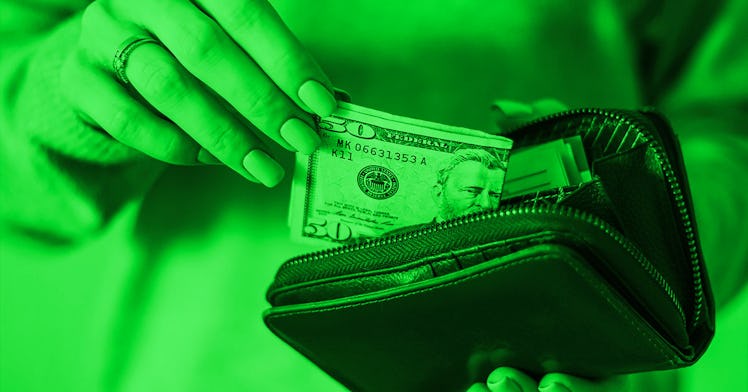Americans Are $13.5 Trillion Richer Than They Were Before the Pandemic
A combination of a booming market and government intervention blunted the impact of the COVID-19 recession—but not for everyone.

The massive losses of the pandemic recession—22 million jobs lost in the first two months alone—were ultimately counterbalanced by federal measures that were “unprecedented in its scale, scope, and speed.” Congress ultimately pumped nearly $5.8 trillion into the economy, money that, along with the stronger than expected rebound of the stock market, meant American households actually added $13.5 trillion in wealth last year, according to the Federal Reserve.
But while stimulus payments and expanded unemployment insurance certainly helped many among the working class survive, those at the top received a disproportionate share of the benefits.
Most Americans, according to the Wall Street Journal, gained wealth during the pandemic. But 70 percent of that $13.5 trillion went to the top 20 percent and a third of it went to the top one percent. The benefits, in other words, were heavily distributed among the rich, another example of the reality that it’s much easier to accumulate wealth if you already have some.
Besides the aforementioned stimulus payments and unemployment benefits, the federal government also paused the collection of some student loan and mortgage payments, allowing people to keep more money than they would normally.
All of these interventions are either ended or about to end, leaving the working- and middle-class folks who largely benefited from them to fend for themselves.
The Federal Reserve lowered interest rates, launched emergency lending programs to purchase government debt, and took further steps to ensure banks kept lending throughout the pandemic. All of these steps ended up juicing the stock market, which is great news for those who trade stocks and/or have their retirement funds invested in the market, a population that’s much more likely to be on the wealthier end of the spectrum.
Also propping up the economy were soaring housing prices, the result of a pandemic-induced spike in demand, and the aforementioned low-interest rates, which made mortgages cheaper than they’ve been in a long time. Again, those who owned their own homes benefited from these increases while renters did not.
All in all, we’re left with an economy that’s doing better because of government interventions designed to stave off complete collapse. But as they were before the pandemic, the working and middle classes aren’t getting their fair share of those gains.